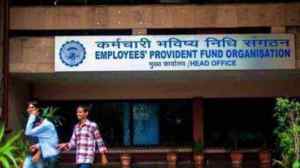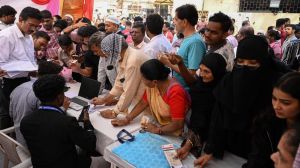Alarm bells
The dominant and sombre theme of the Economic Survey for 1999-2000 is the crisis in public finances. No one can miss the alarm bells. Each...

The dominant and sombre theme of the Economic Survey for 1999-2000 is the crisis in public finances. No one can miss the alarm bells. Each of the annual reports on the economy of the last decade has emphasised the importance of fiscal consolidation but the cumulative effect of this year8217;s Survey is more dramatic than usual and suggests that the situation is going out of control. 8220;Fiscal prudence is the most pressing issue confronting us8221;, it says, and calls for more effective management of public finances at all levels of government.
The combined fiscal deficit of the Centre and states for 1999-2000 is expected to exceed the 8.5 per cent level of 1998-99. In the current year although revenue has grown it has not grown fast enough and expenditure, including unanticipated defence and pension outlays, grew faster. Central government borrowing has been excessive borrowing and other li- abilities increased by a whopping 21 per cent in the first nine months over the same period last year.
Clearly things are in the realm of the absurd when almost half of net central revenues goes on paying the interest on government debt. The survey warns that savings and capital investment are jeopardised and unless the Centre and states get a grip on their finances rapid economic growth will not be possible.
The grim picture of high fiscal and revenue deficits sets the scene for the hard decisions pro-mised in the Budget. Nothing should divert the Finance Minister from the task of reducing the deficit. Any populist advice he is offered after the less than happy outcome of the latest elections for the BJP, whose national ambitions have been dented, should be rejected out of hand. There is an opportunity today for tough measures which will not come again. Politically there is a relatively stable formation at the Centre.
The clamour for efficient public services is growing and overwhelming state governments who are compelled one after the other to try to reform state enterprises. So the reform consensus is getting wider. Thirdly, inflation is low; it is near an annual rate of five per cent and that has not been known for a very long time.
Rapid growth cannot be achieved with public investment at present low levels and two successive years of falling foreign direct investment. Resources must be found to invest in the infrastructure and improve social welfare provision. A serious revenue raising effort will have to be made and include tapping the hitherto exempted sectors like software exports; the service sector which accounts for almost 45 per cent of GDP can yield more than it does.
There is much to be done and the Economic Survey provides many hints of what is to come. Fertiliser subsidy cuts are heralded in the survey which rightly argues in favour of a shift from subsidies to higher levels of investment in agriculture and trade facilitating policies. The privatisation of power distribution is advocated. There is no choice but to downsize government, not in five years but starting this year with a freeze on new recruitment.
Departments with indeterminate functions are better shut down. Let us see the Finance Minister take an axe to expenditure and squeeze revenue out of stones.
- 01
- 02
- 03
- 04
- 05































